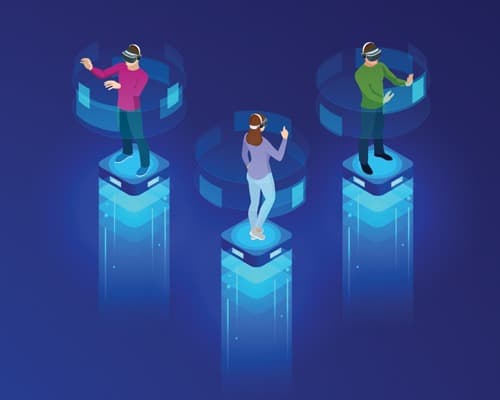How technology will enable government jobs
A new report from Deloitte, “Government Jobs of the Future,” predicts public-sector positions that could exist by 2025, indicating how technology could help the government sector  Scaremongering in the press often leads to the idea that technology will push people out of their jobs, with its ability to take on multiple people’s work at a fraction of the cost. However, less focus is given to the positive impact it could have on occupations and the new opportunities it could create. In a new report, Government Jobs of the Future, researchers consider what government work will look like in 2025 and beyond, and the prophesy is fascinating.
Scaremongering in the press often leads to the idea that technology will push people out of their jobs, with its ability to take on multiple people’s work at a fraction of the cost. However, less focus is given to the positive impact it could have on occupations and the new opportunities it could create. In a new report, Government Jobs of the Future, researchers consider what government work will look like in 2025 and beyond, and the prophesy is fascinating.
Jobs of the future
Developing technologies could enable government work to become more impactful and productive, increase decision-making capability, and provide better support for the overall wellbeing of employees. Some of the jobs envisioned by the authors, are as follows:
1. Child Aid Coordinator
What is it? Similar to a social worker, a child aid coordinator (CAC) would investigate cases of abuse and neglect, organise and arrange required services, place children in foster care or adoption homes, and provide counselling and support for families. How is this enhanced by technology? Paperwork – one of the most time consuming tasks, is taken care of by an arsenal of cognitive technologies, meaning CACs can focus on in-person interactions. Predictive analytics and machine learning help them make faster and more effective decisions based on data. Cases are better matched to each CAC through management systems that ties them with the relevant experience and specialism.
2. Criminal Redirection Officer
What is it? What could almost be a game-changing job in the justice sector, a criminal redirection officer (CRO) works with low-risk, nonviolent offenders who qualify to be ‘virtually incarcerated’. This means they are allowed to move within designated areas, such as their home and work, instead of being in prison. A CRO would monitor their movements, behaviours, advise on skill-building and employment opportunities, deploy interventions and initiate preventative action. How is this enhanced by technology? CROs would monitor offenders using a suite of digital tools. AI and analytics-based tools use historical and real-time data to inform the CRO’s action plan and suggests interventions for each offender. CROs have regular virtual check-ins with them and other stakeholders.
3. Mobility Platform Manager
What is it? Mobility platform managers (MPM) would be responsible for public safety, accessibility, and equity within mobility systems. MPMs would oversee and manage the city’s multimodal transportation system, optimise prices and routes based on demand and supply, and develop new programmes, routes and models of transport to enhance the quality of life for citizens. How is this enhanced by technology? MPMs would stay up to date on advances in their field using integrated micro learning tools. Through an AI-powered system, they can optimise routes and pricing, and to prepare for potential disasters, they can use predictive models to help plan resources and adapt routes.
4. Public Health and Safety Guardian
What is it? Public health and safety guardians (PHSGs) take the current role of health and safety officers to a more preventative one. They would proactively prevent noncompliance and potential food and safety violations, inspecting restaurants, schools, nurseries and more, as well as analysing health and violations data to identify trends and resolve issues. How is this enhanced by technology? PHSGs can conduct targeted, pre-emptive inspections of high-risk establishments using AI and predictive analytics. Systems analyse data to test which reprimands would be most effective. Due to admin and reporting tasks being handled by cognitive technology, PHSGs have more time to learn and mentor others.
Enabling future generations
There is much still to be understood about how the technological revolution will affect jobs. But if it can enable new roles in the public sector, that add value to services and benefit citizens, then we have much to look forward to. Find out how SCC helps public sector organisations with their digital transformation.